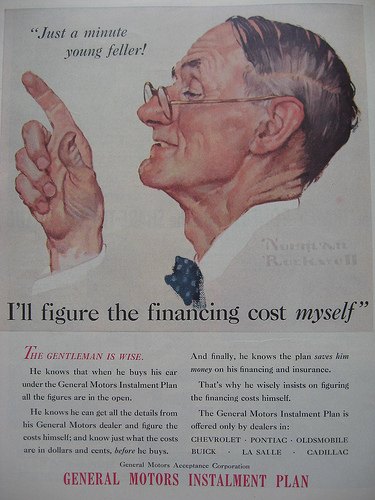Toyota Woes Drag Detroit Back Into Incentive Wars
The biggest storyline right now for America’s bailed-out automakers is how little they’ve been able to capitalize on Toyota’s stumbles. While Ford and Hyundai made hefty sales gains last month, both GM and Chrysler’s performances were distinctly unimproved by Toyota’s woes. And now that Toyota is launching major incentive packages to recover lost sales momentum, Detroit has no remaining incentive to not revert to the bad old practices of incentive dependence. With GM and Ford diving into the zero-percent war, Global Insight’s George Magliano tells Automotive News [sub]:
Incentives are going to be here into the third quarter. We’re not going to wean consumers off incentives any time soon. We’re stuck with it. They’re all jockeying for position… After clunkers everybody backed off incentives. Now they’re going to the whip again
More by Edward Niedermeyer
Latest Car Reviews
Read moreLatest Product Reviews
Read moreRecent Comments
- Kjhkjlhkjhkljh kljhjkhjklhkjh A prelude is a bad idea. There is already Acura with all the weird sport trims. This will not make back it's R&D money.
- Analoggrotto I don't see a red car here, how blazing stupid are you people?
- Redapple2 Love the wheels
- Redapple2 Good luck to them. They used to make great cars. 510. 240Z, Sentra SE-R. Maxima. Frontier.
- Joe65688619 Under Ghosn they went through the same short-term bottom-line thinking that GM did in the 80s/90s, and they have not recovered say, to their heyday in the 50s and 60s in terms of market share and innovation. Poor design decisions (a CVT in their front-wheel drive "4-Door Sports Car", model overlap in a poorly performing segment (they never needed the Altima AND the Maxima...what they needed was one vehicle with different drivetrain, including hybrid, to compete with the Accord/Camry, and decontenting their vehicles: My 2012 QX56 (I know, not a Nissan, but the same holds for the Armada) had power rear windows in the cargo area that could vent, a glass hatch on the back door that could be opened separate from the whole liftgate (in such a tall vehicle, kinda essential if you have it in a garage and want to load the trunk without having to open the garage door to make room for the lift gate), a nice driver's side folding armrest, and a few other quality-of-life details absent from my 2018 QX80. In a competitive market this attention to detai is can be the differentiator that sell cars. Now they are caught in the middle of the market, competing more with Hyundai and Kia and selling discounted vehicles near the same price points, but losing money on them. They invested also invested a lot in niche platforms. The Leaf was one of the first full EVs, but never really evolved. They misjudged the market - luxury EVs are selling, small budget models not so much. Variable compression engines offering little in terms of real-world power or tech, let a lot of complexity that is leading to higher failure rates. Aside from the Z and GT-R (low volume models), not much forced induction (whether your a fan or not, look at what Honda did with the CR-V and Acura RDX - same chassis, slap a turbo on it, make it nicer inside, and now you can sell it as a semi-premium brand with higher markup). That said, I do believe they retain the technical and engineering capability to do far better. About time management realized they need to make smarter investments and understand their markets better.


































Comments
Join the conversation
I don't foresee Toyota dropping their prices much, as that doesn't seem to be their model. They're presumably cutting overhead, by closing NUMMI, and calling for various plant idlings as necessary. And Hyundai and Kia were on the lower end of the incentives scale as I recall. The Detroit 3 is on their own here, as usual. They're the ones with the overcapacity and inflexible overhead, so a price war hurts them the most. And Government Motors has shot their wad on the Toyota hysteria, so they can't really play that card again on the other transplants. The market will decide, and I can't foresee the market supporting any Government Motors IPOs in the near term.
GM's few vehicles that could take Toyota sales (Equinox/Terrain; Malibu, LaCrosse) are in short supply; they weren't positioned to take advantage. Ford is pushing aging platforms (yes, even the Fusion) that EcoBoost can't save. Chrysler -- meh. Toyota will win, again. But maybe they just played to the level of competition - with only Hyundai raising the bar.